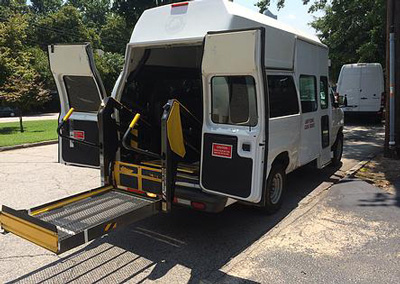Conveniently Reach Medical Care with Medical Transportation Services Near Me
Conveniently Reach Medical Care with Medical Transportation Services Near Me
Blog Article
Easily Accessible and Affordable Medical Transport Options for Seamless Health Assistance
In the realm of healthcare, the ease of access and cost of medical transportation are extremely important in ensuring individuals can access the treatment they require when they need it. The capacity to seamlessly navigate transportation options can dramatically affect a person's ability to get prompt clinical interest, follow-up treatment, and general health. From non-emergency clinical transportation services to ingenious solutions like telehealth, the landscape of clinical transport is developing to fulfill the varied demands of patients. Considering the relevance of this aspect in healthcare distribution, exploring the array of options available comes to be important for dealing with spaces in access and price.
Non-Emergency Medical Transportation Provider

These services are staffed by skilled experts who prioritize client convenience and safety throughout transit. Motorists are outfitted to take care of individuals with differing clinical demands and make certain that all journeys are trouble-free and smooth - Medical Transportation Services Near Me. Furthermore, non-emergency clinical transportation services typically make use of customized automobiles that are wheelchair-accessible, making them appropriate for a wide variety of clients with various flexibility demands
Volunteer Vehicle Driver Programs
Volunteer vehicle driver programs contribute in offering transportation help for people seeking non-urgent treatment. These programs depend on the generosity of volunteers who donate their time and cars to aid transportation individuals to and from clinical appointments. By using volunteer vehicle drivers, organizations can offer a cost-effective remedy for people who might not have accessibility to trusted transportation.
Among the crucial advantages of volunteer vehicle driver programs is the personalized treatment and focus that people obtain. Unlike traditional transport solutions, volunteer motorists often create a rapport with the individuals they aid, developing a thoughtful and supportive atmosphere throughout what can be a demanding time. In addition, volunteer driver programs can assist link the space for people residing in country or underserved locations where public transport alternatives might be restricted.
Public Transport Options

One of the essential benefits of mass transit is its widespread availability in urban and country areas alike. This extensive network allows people from varied histories to take a trip to clinical visits with loved one convenience. Additionally, public transportation systems are often furnished to suit people with impairments, giving available travel choices for those with mobility obstacles.

Ride-Sharing and Transport Network Firms
The internet evolution of modern-day transport options for clinical purposes prolongs past standard public systems like buses and trains to encompass the ingenious realm of ride-sharing and transportation network companies. Ride-sharing solutions such as Uber and Lyft have reinvented the way people take a trip to medical consultations, supplying convenience and flexibility to people who might not have accessibility to their vehicles or traditional public transport. These platforms permit customers to request a ride with the touch of a button on their smartphones, providing door-to-door solution that can be specifically helpful for individuals with wheelchair difficulties or those calling for support.
Transport network companies (TNCs) have additionally played a significant function in bridging the gap in clinical transport services. Firms like Veyo and RoundTrip focus on non-emergency clinical transportation, satisfying individuals who require a higher level helpful during their trips to clinical facilities. By partnering with doctor view and insurers, TNCs make sure that people can access prompt and reputable transport services, eventually adding to boosted wellness outcomes and client contentment.
Telehealth and Online Consultations
Enhancing medical care availability and ease, telehealth and online appointments have actually become critical elements in contemporary clinical practices, changing the method patients interact with doctor. Telehealth leverages technology to promote remote communication between clients and medical care professionals, supplying a large variety of services such as virtual examinations, remote monitoring, and digital prescriptions. Digital consultations enable clients to look for clinical suggestions, medical diagnosis, and therapy from the convenience of their homes, eliminating the demand for physical sees to health care centers. This technique not only saves time and minimizes transportation expenses for people however likewise boosts the general efficiency of health care shipment.
In addition, telehealth plays a crucial duty in extending clinical solutions to underserved neighborhoods, country locations, and individuals with limited flexibility. By damaging down geographical barriers and raising health care outreach, telehealth advertises early treatment, continuity of care, and patient involvement. As technology proceeds to advancement, telehealth is poised to play a significantly substantial duty in shaping the future of health care shipment, cultivating enhanced health outcomes and client satisfaction.
Verdict

From non-emergency medical transport services to ingenious services like telehealth, the landscape of clinical transport is advancing to meet the varied needs of patients.Non-Emergency Medical Transportation Provider assist in the safe and prompt transport of individuals calling for non-urgent clinical care to and from healthcare facilities.The evolution of modern-day transportation alternatives for medical purposes extends beyond conventional public systems like buses and trains to include the innovative world of ride-sharing and transportation network firms.Transport network firms (TNCs) have also played a substantial role in linking the space in clinical transport services. Non-Emergency Medical Transport Services, Volunteer Vehicle Driver Programs, Public Transport Options, Ride-Sharing and Transportation Network Companies, and Telehealth and Virtual Consultations all play a crucial duty in attending to transportation barriers to medical care gain access to.
Report this page